When you visit Costco and fill your cart with various items, have you ever wondered about the journey those products took to get there? Many of these items arrive from around the world, packed in containers on massive shipping vessels that dock at ports like Long Beach. This global journey involves a complex network of logistics, and at the heart of it all is a crucial player: the customs broker.
Understanding the Supply Chain
Picture this: A container filled with goods arrives at a port. This container has traveled across oceans on a vessel operated by companies like Maersk or MSC. These are known as vessel operators, and they are responsible for the ships that transport goods internationally. However, there’s more to the process than just shipping.
The Role of the Customs Broker
Customs brokers play an essential role in this intricate supply chain. Licensed by the treasury, customs brokers handle the essential paperwork needed to bring goods into the country. This involves memorizing and applying the regulations outlined in the 19 CFR (Code of Federal Regulations), which govern import procedures.
Every imported item is classified into specific numeric codes, from the clothes we wear to the components of the devices we use. These classifications determine the taxes and fees that must be paid to the government. Customs brokers accurately classify these goods, report their value, and ensure that the appropriate taxes are collected.
Working for Importers and the Government
While customs brokers primarily serve importers who bring goods into the country, they also have a responsibility to the government. They ensure that all regulations are followed, and the correct duties are paid. This unique position bridges the gap between private companies and federal requirements.
The Freight Company’s Role
In the office of a typical freight company, a team of dedicated professionals works tirelessly. These companies often operate as Non-Vessel Operating Common Carriers (NVOCC), which means they rent space on large shipping vessels to move freight. The team processes documents, coordinates with truckers, and handles numerous financial transactions to ensure that goods move efficiently from one point to another.
Challenges and Responsibilities
Medium-sized firms handle a significant volume of shipments. Unlike larger firms that specialize tasks assembly-line style, team members in these firms are trained to manage the entire process from start to finish. This comprehensive training ensures that employees gain a deep understanding of the logistics and challenges involved in customs brokerage.
The Value of Comprehensive Training
This approach provides valuable experience to employees, preparing them for future career opportunities. While this method can be challenging as companies grow and handle more volume, it ensures that the team remains knowledgeable and adaptable.
The next time you shop at Costco, take a moment to appreciate the journey your products have taken. From distant parts of the world, through the efforts of vessel operators, freight companies, and customs brokers, each item has navigated a complex web of logistics to reach your cart. Customs brokers ensure that this journey complies with regulations, taxes are correctly assessed, and goods move smoothly through the supply chain.





